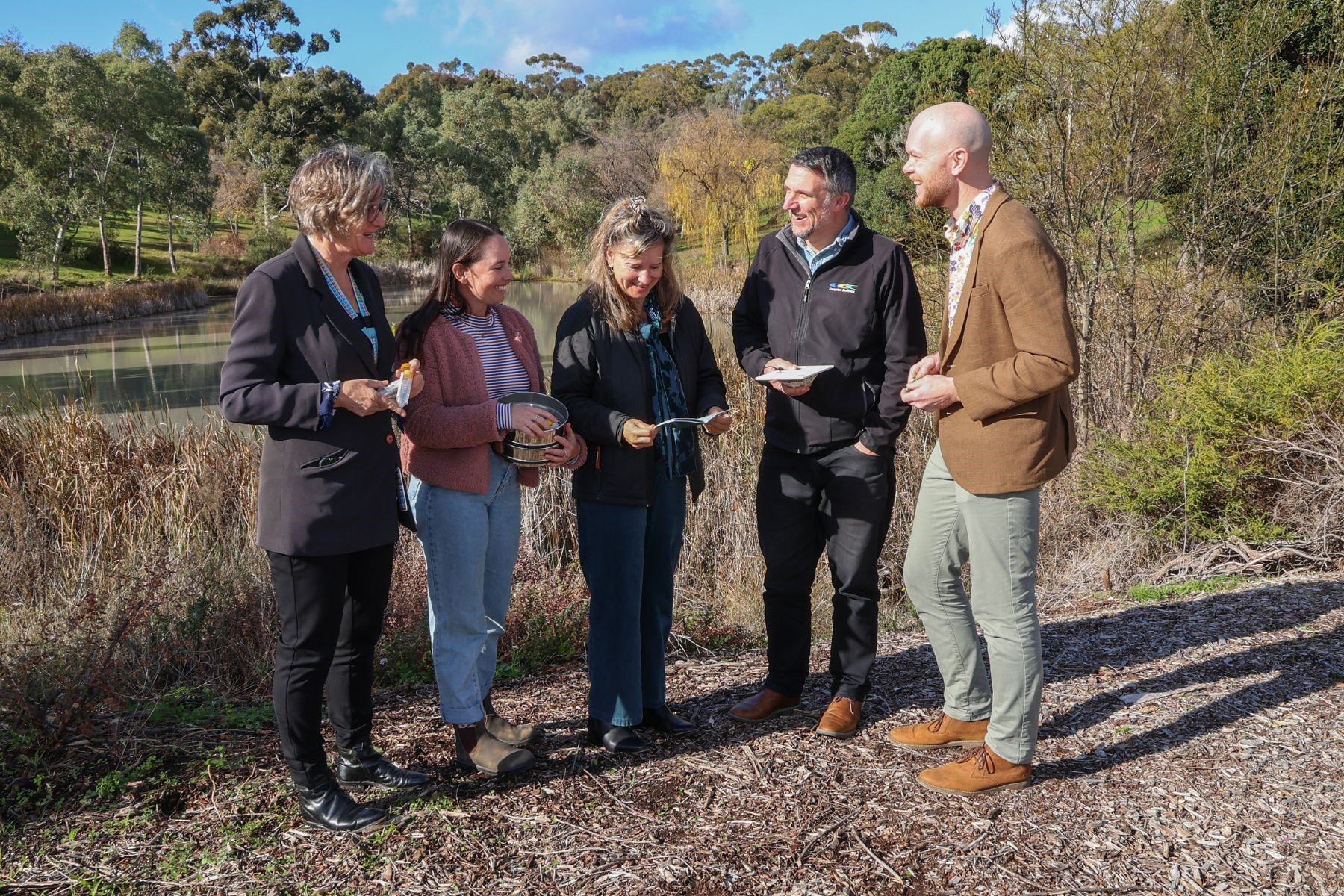
Scientists and researchers from the College of Science and Engineering had a big night out at this year's national Eureka Prizes, when Flinders University took out two awards.

Flinders University's two entries were finalists (out of 59) which were in the running for 19 Eureka Prizes decided last night (3 September 2025).
The Australian Museum Eureka Prizes are the nation's premier science awards, celebrating the very best of Australian scientific discovery, invention, communication, innovation and leadership.
In the Research and Innovation category, the Flinders 'Towards a Smart PCR Process' entry won the University of Technology Sydney and Australian Federal Police Eureka Prize for Excellence in Forensic Science
The project is led by a forensic science team of Professor Adrian Linacre and PhD candidate Caitlin McDonald, with Associate Professor Russell Brinkworth for computer analysis and Flinders graduate and lecturer Dr Duncan Taylor, now senior scientist at the State Government's Forensic Science SA agency.
Towards a Smart PCR Process developed a DNA amplification system that uses real-time feedback and machine learning to adjust the process as it runs. This improves the quality of genetic data from degraded or low-level samples, increasing the chances of recovering usable results for forensic investigations and other scientific applications.
Meanwhile, in the Science Engagement category, the Flinders University's Passport2Recovery project on Kangaroo Island took out the Department of Industry, Science and Resources Eureka Prize for Innovation in Citizen Science
Passport2Recovery provides critical insights into Kangaroo Island's recovery after the 2020 bushfires. It unites 12 research programs in one website and app, including initiatives on native bees, roadkill and koala movements. More than 5,000 tourists from 47 countries have engaged with the program, gaining scientific literacy for future citizen science projects.
The P2R team was led by Professor Karen Burke da Silva and PhD Dr Cassie Hoepner, with environmental experts Dr Julian Beaman, Dr Ryan Baring and Professor of Environmental Health Kirstin Ross supporting volunteers from the community, local Kangaroo Island businesses, schools and other organisations.
The project. supported by the Australian Government's Inspiring Australia Citizen Science grant scheme, and other sponsors, kickstarted a wide range of conservation and environmental recovery projects since Black Summer bushfires ravaged the landscape in 2019-20.

Now in its 35th year, the Australian Museum Eureka Prizes continue to highlight the nation's most significant science achievements; this year offering a total prize pool of $190,000. Since its inception, the Australian Museum has awarded more than $4.9 million in prize money and more than 528 prizes.

Kim McKay AO, Australian Museum Director and CEO, said the winners demonstrate the critical need of supporting and promoting Australian scientific achievement and the importance of investment in research.
"The Australian Museum Eureka Prizes celebrate the very best of Australian science across an extraordinary range of fields." she said.
"The 2025 Australian Museum Eureka Prizes prove that Australian research needs to be supported and funded so scientists can continue to develop practical solutions to global challenges. This year's emphasis on ocean systems, from kelp forests to coral reefs, reflects growing recognition of marine ecosystems' critical role in climate resilience and biodiversity conservation."






